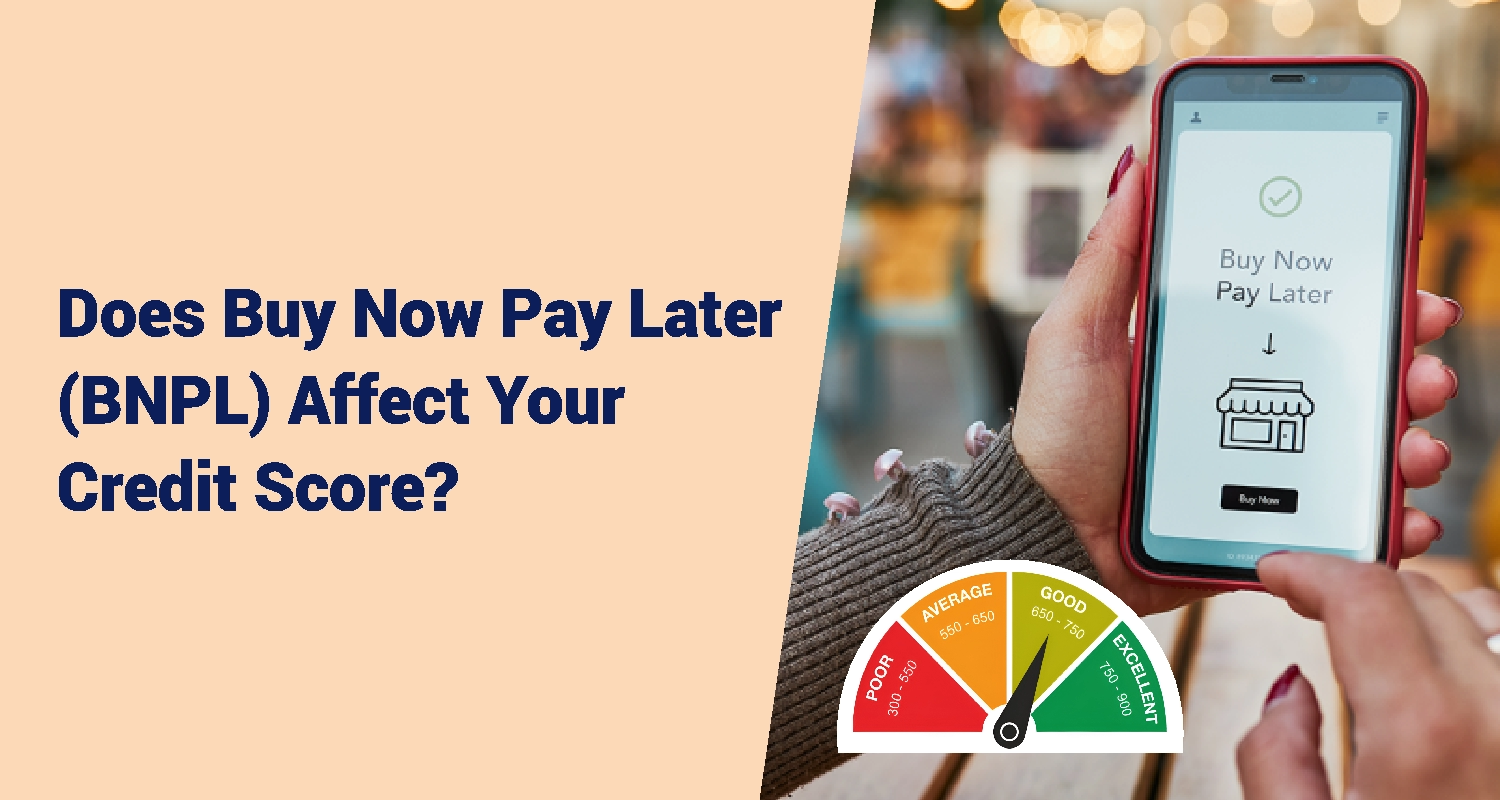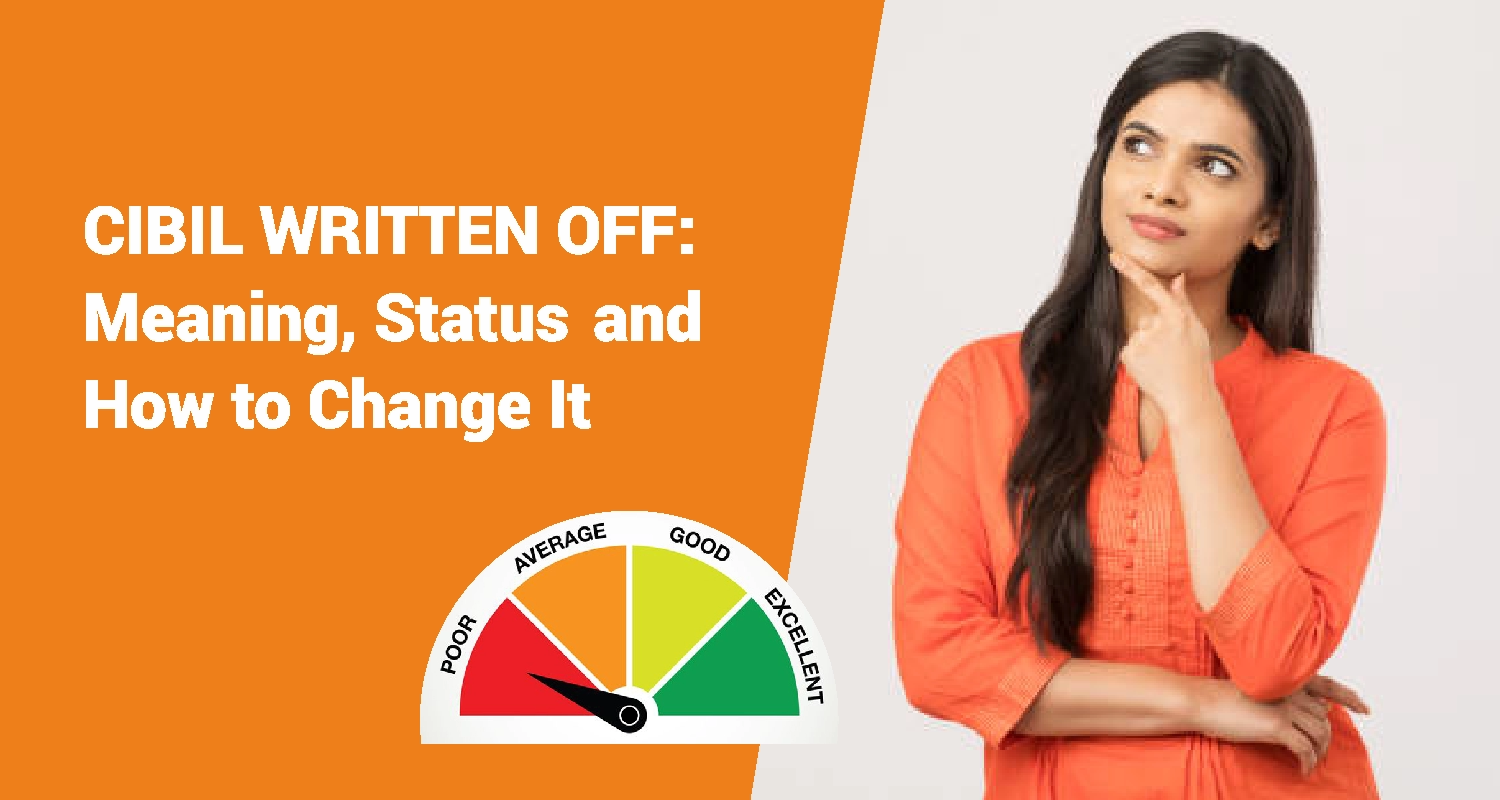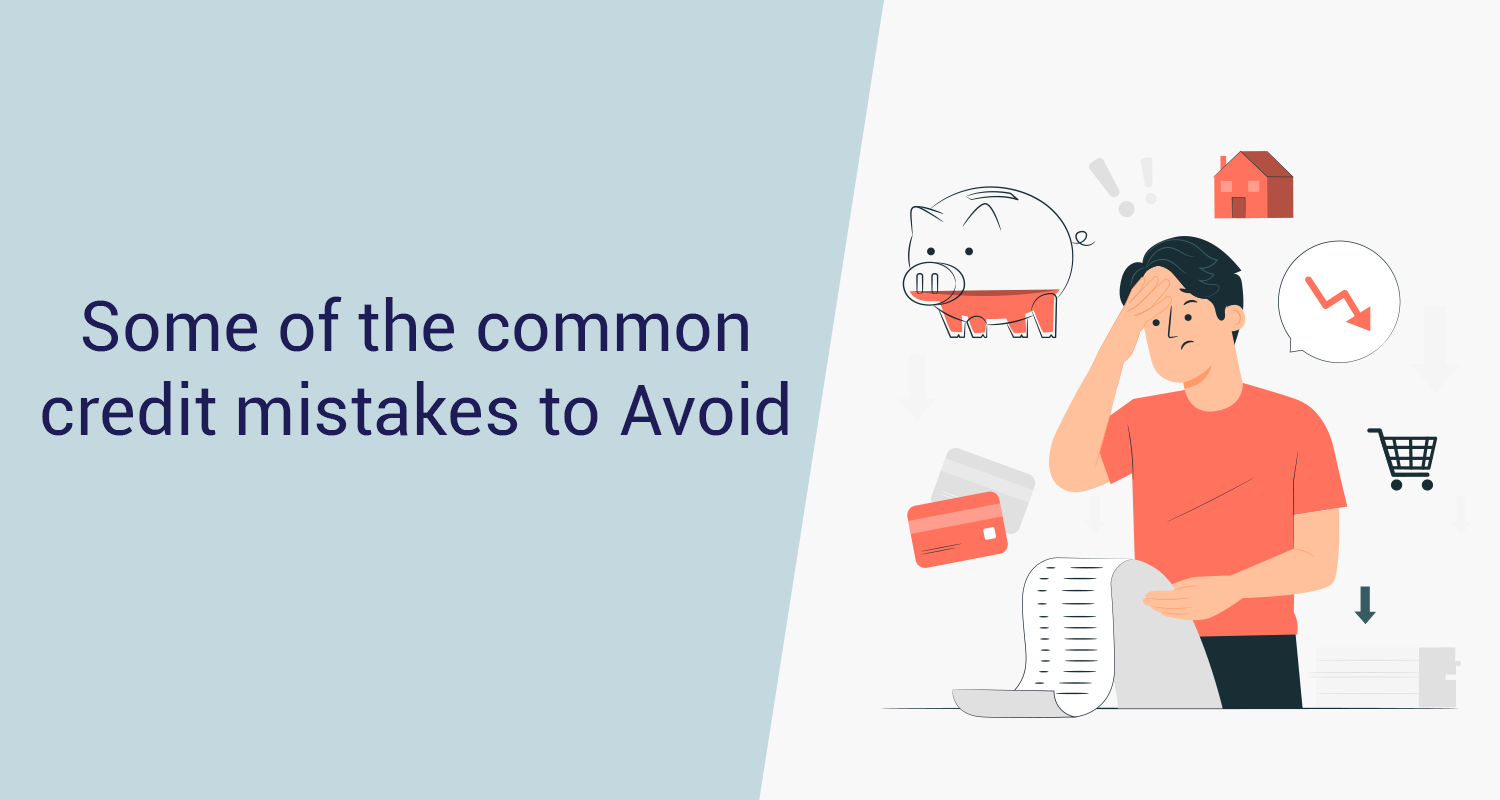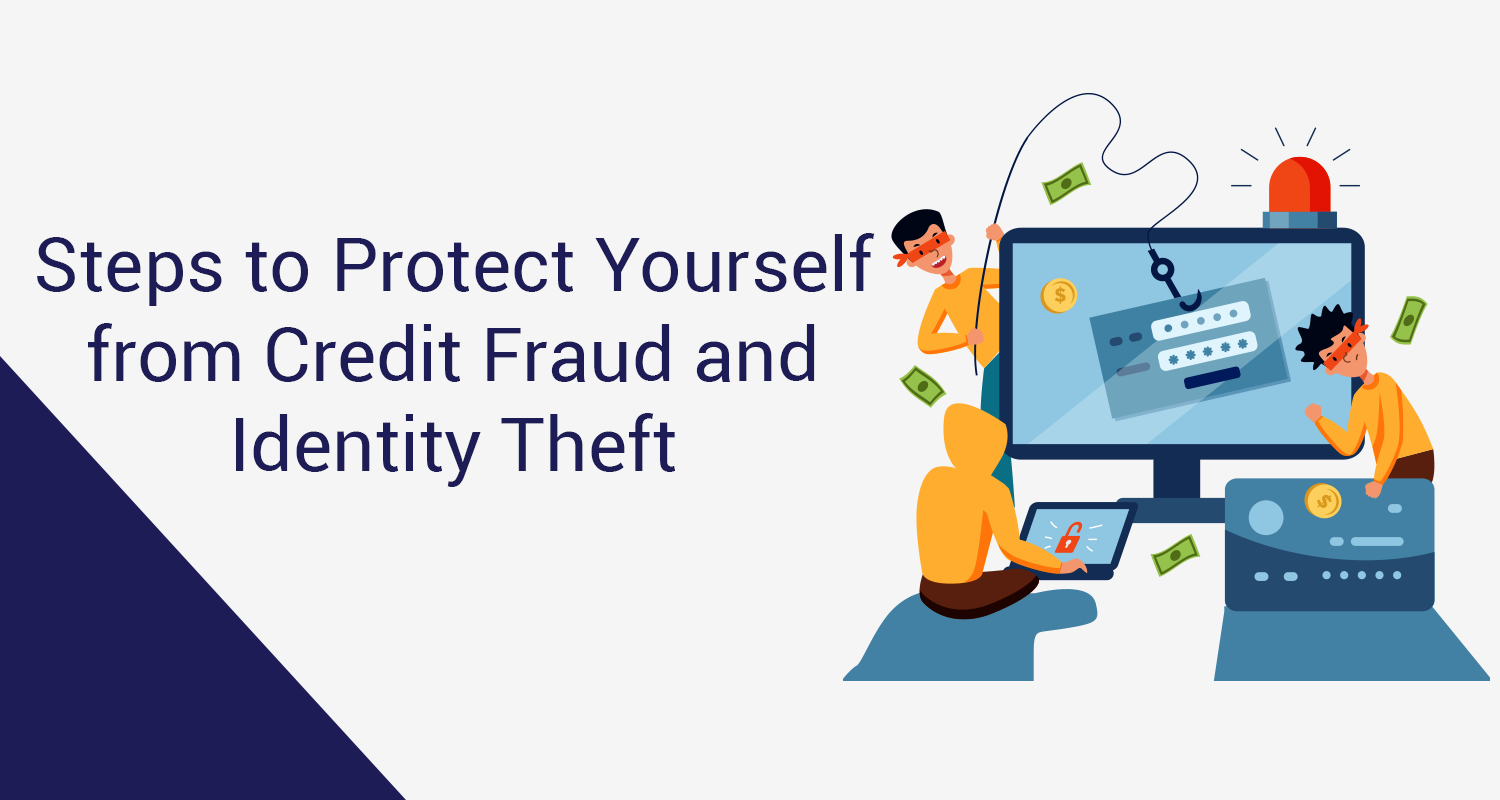What is a Bad Credit Score - How Can You Improve it
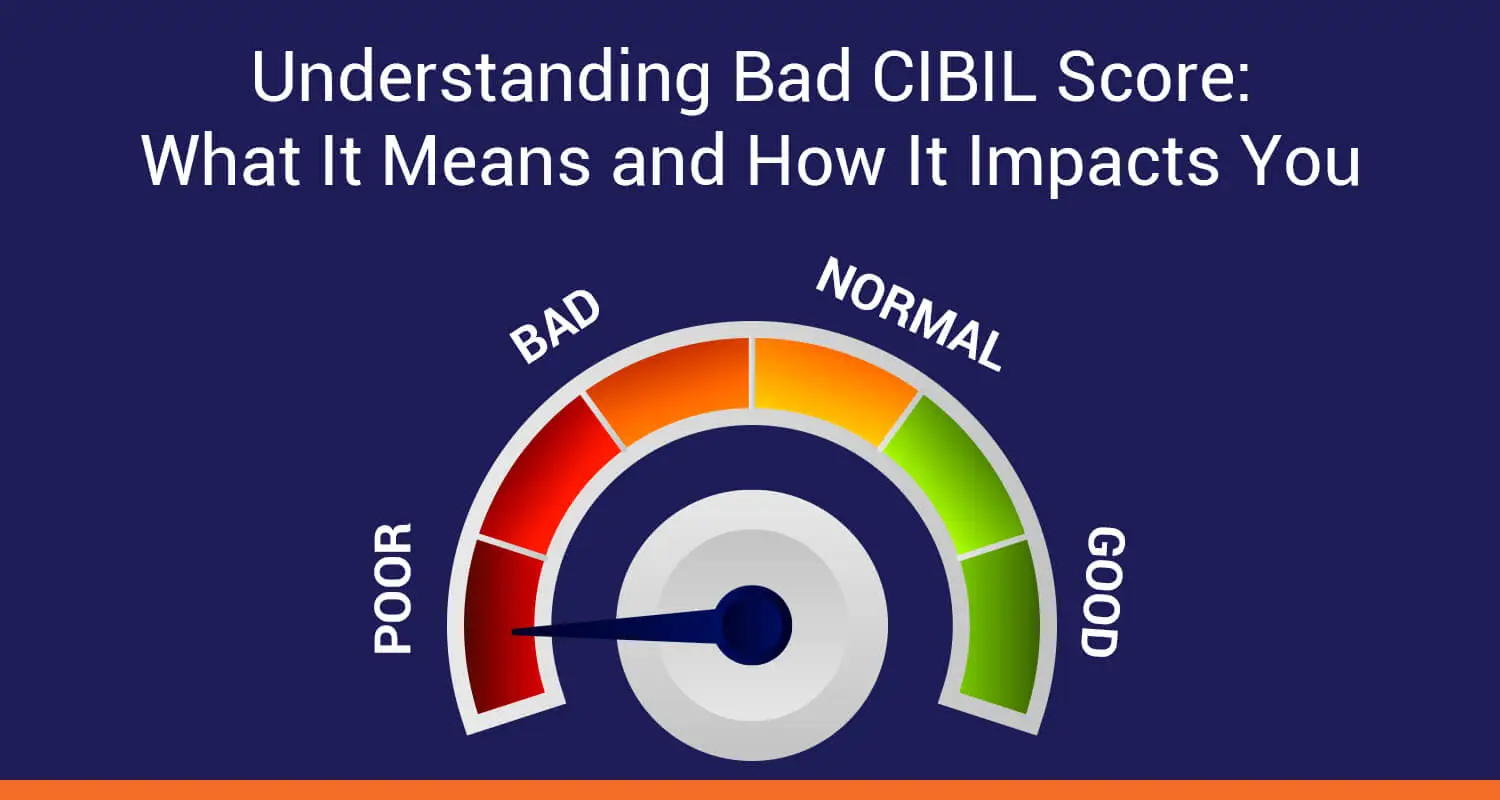
A bad credit/CIBIL score can feel like a heavy weight on your financial well-being. But what exactly is it, and how does it affect you? Let’s explore what defines a bad CIBIL score and the consequences it can have on your ability to borrow money, secure loans, and even rent an apartment. We'll also delve into the reasons behind bad credit and offer practical steps you can take to improve your score and build a brighter financial future.
What is bad credit score?
Your credit score is a number that reflects your history of managing credit. It acts like a financial report card, ranging from 300 (low) to 900 (high). Ideally, you want your score to be closer to 900. Generally, lenders prefer scores above 750.
A bad CIBIL score typically ranges between 300 and 550. can significantly impact your financial life. It can make it difficult or expensive to borrow money, secure loans for major purchases like a car or house, and even rent an apartment. Because of this, understanding what constitutes a bad credit score and how to improve it is crucial for taking control of your financial future.
|
Excellent |
750-900 |
|
Good |
650-750 |
|
Average |
550-650 |
|
Bad |
300-500 |
Sapna aapka. Business Loan Humara.
Apply NowReasons for Bad CIBIL Scores
Building a good credit score takes time and responsible financial management. Here are some common pitfalls that can drag your score down:
- Letting Payments Slip
This is the number one culprit behind low credit scores. Missed payments on credit cards, loans, and utilities all send negative signals to lenders. - Maxing Out Your Credit Cards Credit utilization ratio is a key metric for creditors. It refers to the percentage of your available credit limit that you're using. Ideally, you should aim to keep this ratio below 30%. A maxed-out credit card portrays you as someone who overspends and might struggle to manage debt.
- Credit Card Musical Chairs Opening and closing credit cards frequently can raise red flags for lenders. It can suggest that you're in financial trouble or managing credit poorly.
- Credit Report Errors Don't be a victim of mistaken identity! Errors on your credit report can seriously hurt your score. Make a habit of reviewing your credit report regularly and disputing any inaccuracies you find.
- Being Loan-Shy A surprising fact: having only unsecured loans, like credit cards, can work against you. A healthy mix of credit products, including secured loans like mortgages, can demonstrate your creditworthiness to lenders. It can reflect a bad CIBIL score loan.
Disadvantages of a Bad CIBIL Score
A bad credit score can feel like a roadblock to your financial goals. Beyond making it difficult to qualify for loans, it can impact your wallet in several ways:
- Limited Credit Card Options: With a poor credit score, you might be restricted to secured credit cards, which require an upfront deposit. You may be shut out of cards with rewards programs or low introductory interest rates.
- Steeper Loan Rates: If you do qualify for a loan, you'll likely face higher interest rates. This means you'll pay more for the money you borrow, adding a significant cost to things like cars or homes. Simply put, you might not get a loan for a bad CIBIL score.
- Missed Out on Rewards: Many credit cards offer valuable rewards programs for good credit. With a bad score, you'll miss out on cashback, travel points, and other perks that can save you money in the long run.
In short, a bad credit score can make it more expensive to borrow and limit your access to valuable financial tools. By understanding these consequences, you can take steps to improve your credit score and unlock a brighter financial future.
How to Improve your Credit Score
There are several ways to improve your credit score. You can start by:
- Analysing and reviewing your credit report. Make the required adjustments and enhancements.
- Making amends for your late payments by submitting your future payments on time.
- If you have any debts, pay them off rather than moving the money to other accounts.
- Obtaining a secured credit card is a smart method to start your credit history.
- Raising the credit limit on the credit card you currently own.
- Making appropriate use of both secured and unsecured credit.
- Keeping your credit utilisation ratio low. Discover how to achieve a high credit score and explore if a 900 credit score is possible.
Conclusion
A bad credit score can feel like a burden, but it doesn't have to be a permanent roadblock. By understanding the factors that impact your score and taking proactive steps to improve it, you can build a brighter financial future. Remember, responsible credit management is key. With dedication and a strategic approach, you can unlock better loan rates, access to valuable financial tools, and ultimately, greater financial freedom.
FAQs
Q1. What is considered a bad credit score?Ans. A credit score in the range of 300-550 is generally considered bad. This can make it difficult to qualify for loans or credit cards.
Q2. What are the biggest drawbacks of a bad credit score?Ans. With a bad credit score, you may face limited credit card options, higher interest rates on loans, and miss out on valuable rewards programs.
Q3. How can I check my credit score for errors?Ans. You can access free credit reports from the major credit bureaus (CIBIL or Equifax) once a year. Reviewing your report regularly and disputing any errors is crucial.
Q4. What's the best way to improve my credit score if I have late payments?Ans. Focus on making all future payments on time. Setting up automatic payments or reminders can help you avoid missed dues.
Q5. I'm new to credit. How can I build a positive credit history?Ans. Consider getting a secured credit card. This requires a deposit but allows you to establish a good credit history by making on-time payments.
Sapna aapka. Business Loan Humara.
Apply NowDisclaimer: The information contained in this post is for general information purposes only. IIFL Finance Limited (including its associates and affiliates) ("the Company") assumes no liability or responsibility for any errors or omissions in the contents of this post and under no circumstances shall the Company be liable for any damage, loss, injury or disappointment etc. suffered by any reader. All information in this post is provided "as is", with no guarantee of completeness, accuracy, timeliness or of the results etc. obtained from the use of this information, and without warranty of any kind, express or implied, including, but not limited to warranties of performance, merchantability and fitness for a particular purpose. Given the changing nature of laws, rules and regulations, there may be delays, omissions or inaccuracies in the information contained in this post. The information on this post is provided with the understanding that the Company is not herein engaged in rendering legal, accounting, tax, or other professional advice and services. As such, it should not be used as a substitute for consultation with professional accounting, tax, legal or other competent advisers. This post may contain views and opinions which are those of the authors and do not necessarily reflect the official policy or position of any other agency or organization. This post may also contain links to external websites that are not provided or maintained by or in any way affiliated with the Company and the Company does not guarantee the accuracy, relevance, timeliness, or completeness of any information on these external websites. Any/ all (Gold/ Personal/ Business) loan product specifications and information that maybe stated in this post are subject to change from time to time, readers are advised to reach out to the Company for current specifications of the said (Gold/ Personal/ Business) loan.
